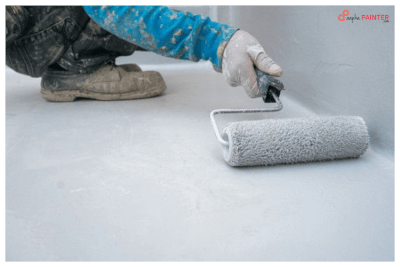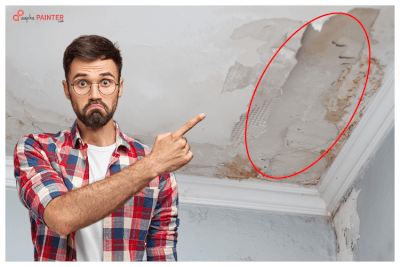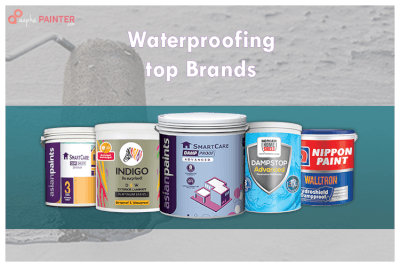Table of Contents
The Best Products for Waterproofing Your Home?
If you are like most homeowners, you want to do everything you can to protect your home from water damage. Waterproofing your home is one of the best ways to achieve this goal.
Waterproofing your home is an important task that should not be taken lightly. If you live in a climate where it rains frequently, or if you have a basement, then waterproofing your home is a must. There are many products on the market that claim to waterproof your home, but not all of them are effective.
In this blog post, we will discuss the best products for waterproofing your home and provide tips on how to use them. We will also talk about the benefits of waterproofing your home and how it can help reduce the risk of water damage.
What is Home Waterproofing?

Home waterproofing is the process of making your home resistant to water damage. This can be achieved by using a variety of products and methods, such as sealing cracks and gaps, installing drainage systems, and using waterproofing membranes.
Waterproofing your home can help reduce the risk of water damage from floods, leaks, condensation, and other sources. It can also help improve the energy efficiency of your home by preventing moisture from entering through cracks and gaps.
There are many benefits to waterproofing your home. However, it is important to choose the right products for your needs and to follow the manufacturer’s instructions carefully.
What Causes Water Damage?

Water damage is caused by many factors, including leaks, condensation, and flooding. Water can enter your home through cracks and gaps in the foundation, walls, ceilings, and floors. It can also come from leaking pipes, appliances, or fixtures.
Condensation can also cause water damage. This happens when moisture in the air condenses on cold surfaces, such as windows or walls. If not properly ventilated, this moisture can lead to mold and mildew growth.
Flooding is another common cause of water damage. This can happen due to heavy rains or storms that cause water to enter your home through the roof, windows, doors, or other openings. Flooding can also occur if a pipe bursts or if there is a sewage backup.
Water damage can be costly to repair and can cause serious health problems, so it is important to take steps to prevent it.
Home Waterproofing Chemicals and Products Explained
With the advent of technology, there are many different products on the market that claim to waterproof your home. It is important to choose the right product for your needs and to follow the manufacturer’s instructions carefully. Let’s discuss the most popular ones in detail.
Poly Acrylics
One of the most popular waterproofing products on the market is poly acrylics. This type of product is typically applied as a liquid or a spray. It forms a barrier that repels water and prevents it from penetrating the surface.
Poly acrylics can be used on a variety of surfaces, including concrete, brick, stone, wood, metal, and asphalt. They are typically used to waterproof basements, roofs, decks, and patios.
Poly acrylics are available in different formulations, so it is important to choose one that is specifically designed for the surface you want to protect. Applying poly acrylics is typically a two-step process. First, the surface must be cleaned and prepared according to the manufacturer’s instructions. Next, the poly acrylics are applied and allowed to dry.
Bituminous Waterproofing
Bituminous waterproofing is another popular option for waterproofing your home. It contains asphalt, which is a black or dark brown mixture of hydrocarbons that are derived from petroleum.
Bituminous waterproofing is typically applied as a liquid or a spray. However, it can also be applied as a sheet or membrane. It forms a barrier that repels water and prevents it from penetrating the surface.
Usually, the formulation of bituminous waterproofing contains polymer and fiber that help to reinforce the barrier. Bituminous waterproofing is ideal for concrete surfaces and is typically used to waterproof basements, roofs, and walls.
Polyurea Waterproofing
Polyurea waterproofing is a newer product on the market that is becoming increasingly popular. It is renowned as the most flexible and resilient chemical in the waterproofing industry since it is not only water-resistant but also abrasion resistant. It contains a group of chemicals that react with each other to form a polymer.
Moreover, polyurea is also said to be anti-bacterial, anti-fungal, and has UV resistance properties. It can be applied to a variety of surfaces, including concrete, wood, metal, fiberglass, and PVC. Polyurea is typically used to waterproof basements, roofs, decks, patios, and swimming pools.
Polyurethane Waterproofing
Polyurethane waterproofing is another option that can be used to waterproof your home. While it can be the most expensive type of waterproofing, it is also the most durable. Polyurethane waterproofing is especially done for roofs and areas that are exposed to outdoor environments and harsh weather conditions.
It is a two-part system that contains a polymer and an isocyanate. When these two chemicals are mixed together, they react to form a polyurethane foam. This foam expands and cures to form a barrier that is water-resistant and durable.
Vinyl Ester Resin
Areas that are damaged due to corrosion and acid are often waterproofed using vinyl ester resin. This type of resin is typically used in commercial and industrial applications. It is also said to be resistant to a variety of chemicals, including acids, alkalis, and salt water.
Vinyl ester resin is a thick creamy liquid that is applied to the surface using a roller or brush. It usually takes about 24 hours for the resin to cure and form a waterproof barrier.
Grout and Epoxy
Finally, another waterproofing option that can be used for your home is grout and epoxy. Grout is a type of concrete that is mixed with water and then poured into cracks or joints to fill them. Epoxy, on the other hand, is a type of resin that is mixed with hardeners to form a thick paste.
Grout and epoxy are typically used to waterproof areas such as showers, floors, pools, and spas. They are also said to be resistant to mold and mildew growth.
Conclusion
There are a variety of waterproofing products that you can use for your home. It is important to choose the right product for the surface you want to protect and the area you want to waterproof.
If you are unsure of which product to use, it is always best to consult with a professional. They will be able to assess your needs and recommend the best course of action for waterproofing your home.
